I really DO NOT KNOW where the first quarter of this year went. Didn’t 2025 just begin?! (But also hasn’t it felt like an entire decade?!) March flew by in a haze of exploration and experimenting, scattered creative energy ready to burst forth after a little February hibernation.
The month also contained two beautiful weddings of dear, dear friends, and I’m currently nursing three beverages (iced coffee, green juice, and about a gallon of water in an obnoxiously large cup) as I recover from the most recent. As I squeak this monthly wrap-up in at the very tail end of March, I hope my slightly chaotic headspace isn’t too obvious—but frankly, cluttered thoughts mean the perfect time to flip through my notebook to capture reflections, milestones, and memories. So here’s what I’ve been thinking about…
learning
I read two craft-y books this month that made me think—one in-the-weeds, one more philosophical, both full of things to chew on.
Steering the Craft by Ursula K. Le Guin. This one has been on my list for a long time, but I picked it up at last after recommendations from some brilliant writer friends. This book is all about the sentence, and what a wonderful, workman-like approach Le Guin takes.
Reading it took me on a bit of a journey—in my undergraduate creative writing classes, I focused so much on the sentence but had zero idea how to string a plot together; when I began pursuing publication, my focus zoomed way out to the macro-level structures that make character arcs sing and themes resonate. Le Guin brought me back to my roots and reminded me—at a perfect time for my current writing projects—that focusing on the sentence can deeply illuminate the work as a whole.
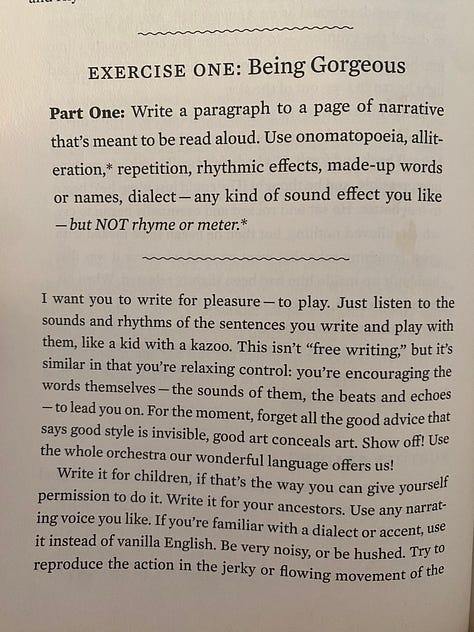


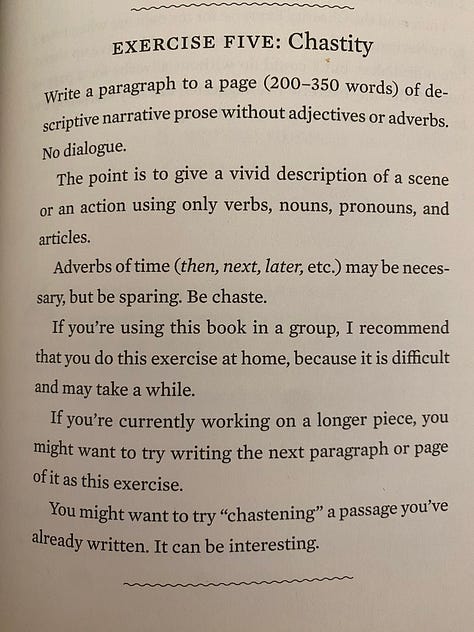

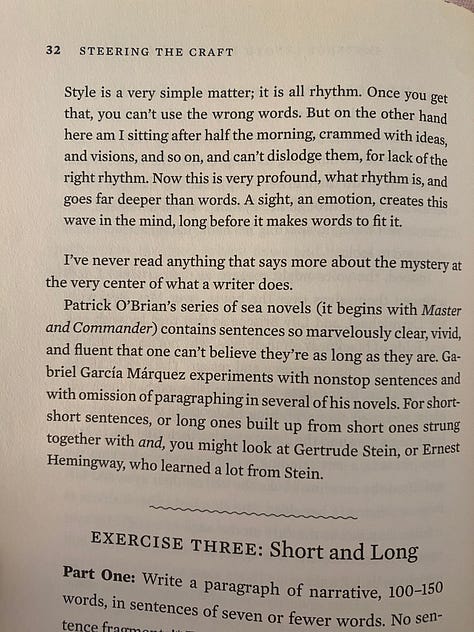
Every chapter has examples from literature, musings on artistic choices, and very concrete, step-by-step exercises. I tried a few while reading and was amazed at how much they helped me crack open the voice of a story or a character.
Typically, I start fairly big-picture in my brainstorming and planning: thinking about characters’ wounds and arcs and needs. But for a current project I’m playing around with, I got out paper and pen and let myself play with all the little choices of language that reveal exactly who a person is and what their story is about.
Yes, switching from short sentences to long ones really changed how I thought about who they were; paring out all adjectives vs. cramming them in shifted what they care about and how they see the world; cutting down a scene to the barest bones revealed the truth at their core.
Le Guin ends by saying:
Some people see art as a matter of control. I see it mostly as a matter of self-control. It’s like this: in me there’s a story that wants to be told. It is my end; I am its means. If I can keep myself, my ego, my wishes and opinions, my mental junk, out of the way and find the focus of the story, and follow the movement of the story, the story will tell itself.
I will definitely be returning to this one and bringing it into the classroom ASAP.
Next up is Make Your Art No Matter What by Beth Pickens. When I finished this book, I was like, I gotta meditate and download the WeCroak app and also set some screentime limits and apply for a conference or two—which maybe gives you an idea of this book’s mix of practical and philosophical advice.
The book begins with a manifesto about the importance of art that reminded me of something V.E. Schwab and Olivie Blake said on a recent No Write Way episode (something to the effect of, “I wish I had more useful skills, but this is the one I’ve got for making the world a little better, so it’s the one I’m going to use”):
Artists are central and active throughout activism, critical thought, and community building, and serving artists could enable me to approach all aspects of justice work in one lifetime.
I really loved this lens on supporting artists’ work, and the whole book is designed to help us get out of our own damn way. Some of my favorite takeaways:
So many of us moan for more time, but how many of us have had an unexpectedly wide open day or an unstructured vacation and found it was actually impossible to use all that time well? (As someone who gets weeks off in the summer, I face a whole other panic at the prospect of structuring my own time and cramming in ALL THE VACATION AND PASSION PROJECTS AND PROCRASTINATED TASKS, wasting not a moment!!) Perhaps we merely need to use even our smaller chunks of time intentionally, putting structure around the things we’re prioritizing in our busy lives and remembering that time spent not working is also important to prioritize. There’s a really lovely section on artists who take an intentional Sabbath: “they remember on a cellular level that they work in order to have a life, rather than live to work. What we feed will grow.” Oof.
A section on asking for things encourages everyone to make a spreadsheet of goals, opportunities, and projects… and then the people you might ask to help you move them forward. Terrifying, right? But Pickens insists we not say no to ourselves, and reminds us that asking will transform us: it will give us greater trust in others and ourselves, remind us of the reciprocity of community, and allow us to play a role in the ever-flowing exchange. And when in doubt, remember:
“When the asking gets tough, try to think of it as asking for help on behalf of your work rather than yourself. The work will go on to have its own life. It’s bigger than you. It will impact people who will have transformative moments with it, all because you created it and let it be in the world… Think of how to be of service to your work so that it can be of service to others.”
A section on marketing reiterated a point I keep telling myself this year that I will simply let stand on its own: “Your fans—current and future—want to know about your work. They would be disappointed, even irritated, if you didn’t tell them about opportunities to experience and support it… Your work is worth promoting… this is your art we’re talking about—the most intimate, essential part of your soul that you are sharing. Help people know about it.”
There are also chapters on isolation, on death, on grief, on fear and money and education and other people. Anything that could be a hang-up gets a chapter and some practical tools for dismantling it. Another wonderful artist therapy session that left me thinking about the structures and boundaries around my art-making and the uninterrogated mindsets that might be holding me back.
Together, these two texts reminded me: your art matters. Honor the craft, honor the work, and get out of the way.
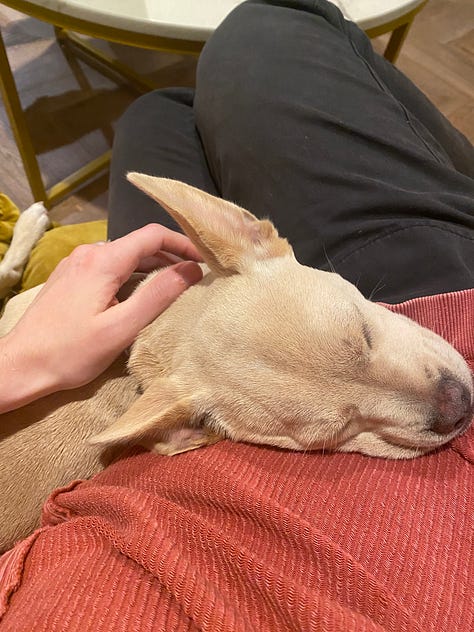

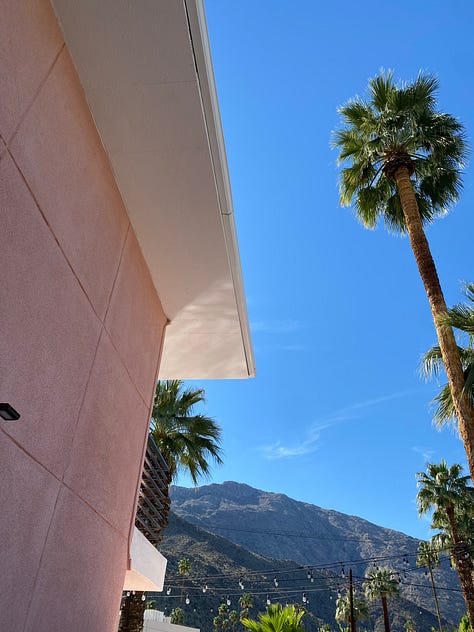
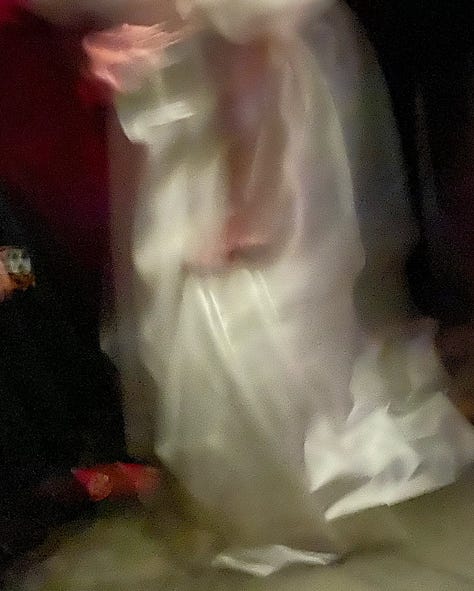
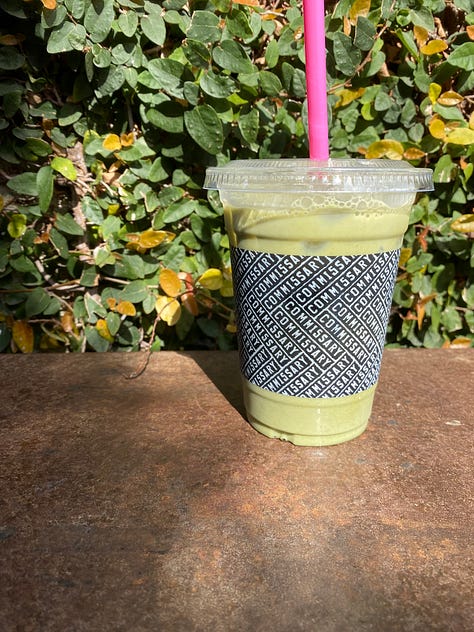
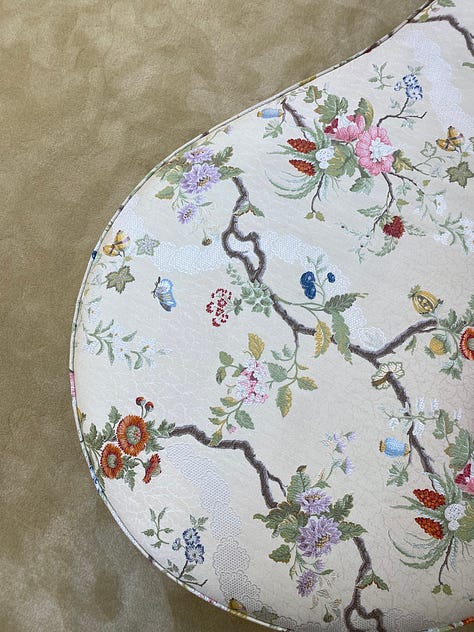

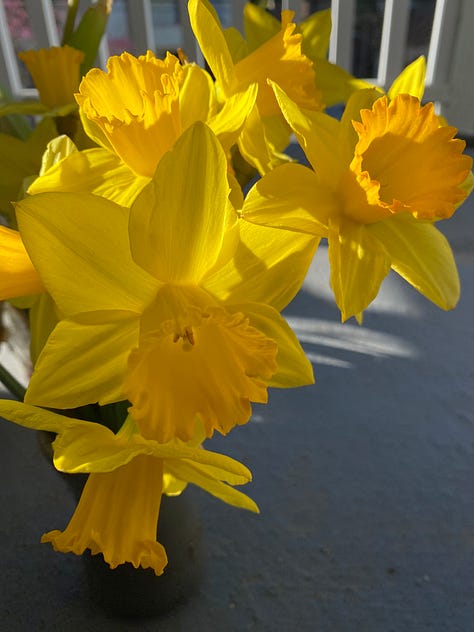
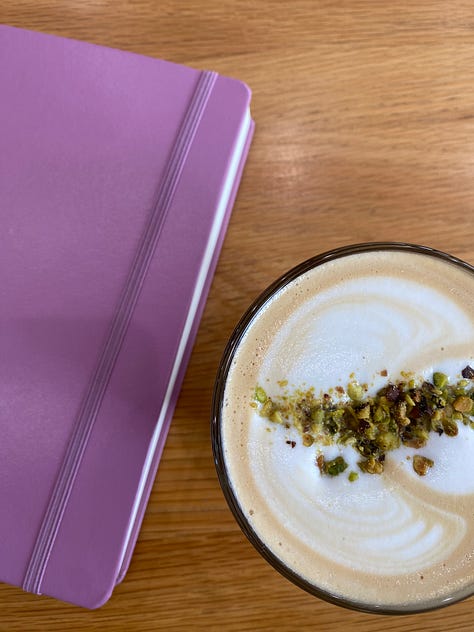
loving
💕 Valerie Lin’s YouTube channel. She’s the dreamiest painter, and her style is so unique: most of her videos feature her creating one of her fantastical and intricate paintings with a voiceover meditating on art, habits, mindset, etc. Footage of art is often spliced with vlog-style clips of the rest of her life while she discusses a creative lifestyle. Soothing, inspiring, and totally unique in my experience! (Though if you know others like her, drop me a line?)
💕 Reality TV of varying calibers: The Traitors, obviously; and I hesitate to say this, but… The Bachelor Season 29?! I have complicated feelings and so many thoughts. Perhaps coming to you in another letter soon.
💕 The latest season of No Write Way. Chuck Tingle’s episode changed my brain chemistry, the conversation with John Green made me feel 1% more enlightened, and the Olivie Blake installment (referenced above!) comforted and delighted me. One of my favorite writing podcasts, and I’m so glad it’s back.
💕 Some really wonderful books, including lots of propulsive romantasy, the genius that is Hanif Abdurraqib, the releases of some dear friends that I’ve been anticipating for literal years now, and the romance that is definitely already a top read of the year.
💕 The little joys of spring: drinking iced matcha in a sunny cafe, buying fresh new cotton PJ sets, reading on my balcony during golden hour, meeting all the neighborhood dogs on afternoon walks, those mini ice cream cones from Trader Joe’s (did y’all see the video of the woman complaining about her husband bringing them home instead of more practical groceries? can’t relate), rediscovering my old film camera, browsing vintage stores for one-of-a-kind gowns for those aforementioned weddings.
💕 Speaking of which, those celebrations of love deserve about a million items on this gratitude list. I’m kinda overflowing with joy for all the people in my life who have given me a chance to dance with friends, play with puppies, and remember what it’s all about. (And maybe to leave with some new romance novel inspo…)
💕 Watching my students turn the corner of the year. This is the phase where I start crossing my fingers and saying “I hope you’ve learned what I wanted you to learn”—like, in the big, deep ways that inspire me to teach. Things like reading with curiosity, trusting your own instincts as a writer, seeking ways to understand and build in discussion rather than scoffing without even making the attempt. I’ve had so many moments lately where they have said to me in ways big and small: oh, yes, we’ve learned.
💕 Finding Water by Julia Cameron. Someone on Substack put me onto this one (I wish I’d made note! let me know if it was you!), and it feels like the right time to get some more Julia in my life. This is basically a continuation of The Artist’s Way, with the addition of one more ingredient to her regimen: walks! I’m sold. So nice to have the ritual of reading one of her essays as a part of my weekend once more.
lately
This month marked second pass pages for Heart Check, which is wild! Look at that beautiful title page!!! At this stage, we’re fixing a few word changes and formatting errors and not much else. My editor warned me this is just about the last chance I have to make changes before final printing, and I’m mostly just proud of myself for not having a full mental breakdown over that fact.1
That may partly be thanks to the multiple other creative burners on my stove at the moment (thanks to V.E. Schwab for the metaphor): a new idea I’m playing around with, an old one I’m revising, a zero draft I’m fleshing out, and the accidental weekly cadence I kept up in here this month (which was a great lesson in releasing, both writing into the world and the perfectionism that sometimes prevents it). My brain is a little chaotic right now, but also energized.
In Finding Water, Julia Cameron reminds us the artist is much happier when working—if there’s no drama on the page, we’ll find drama in our lives. That’s certainly true for me, so I’ll keep blissfully escaping into whatever projects are calling my name. The trick for me right now is enjoying them without putting pressure on them (this year has certainly been busy enough to court burnout), so wish me luck!
Hoping the first quarter of this year (I repeat: how?!?!) has treated you well, and sending you much love always,
🤍 Emily
If you want to preorder the fancy sprayed edges version of Heart Check (special edition for the first printing only!!) that I can no longer make any changes on. :) I’m fine it’s fine!!










I’m pretty sure I own Steering the Craft and haven’t read it yet! This inspired me to move it up on the list. I love writing exercises like this. My favorite place to use them is during revisions.
a treasure trove of gems in here for inspiration. and thanks for the reminder to check out make your art no matter what since you told me about it! love your musings and recos 🤍